Reading readiness Alphabet Worksheets for Ages 3-5
6 filtered results
-
From - To
Unlock your child’s potential with our Reading Readiness Alphabet Worksheets for Ages 3-5! Tailored for early learners, these engaging worksheets help build foundational skills in letter recognition, phonics, and early literacy. Each fun activity is designed to captivate young minds while promoting independence and confidence in reading. Bright, colorful, and easy-to-follow worksheets ensure that your child can learn at their own pace. Perfect for parents, teachers, and caregivers seeking to boost readiness for kindergarten. Dive into an educational adventure today with Kids Academy's expertly crafted alphabet worksheets — the first step towards a lifelong love of reading!
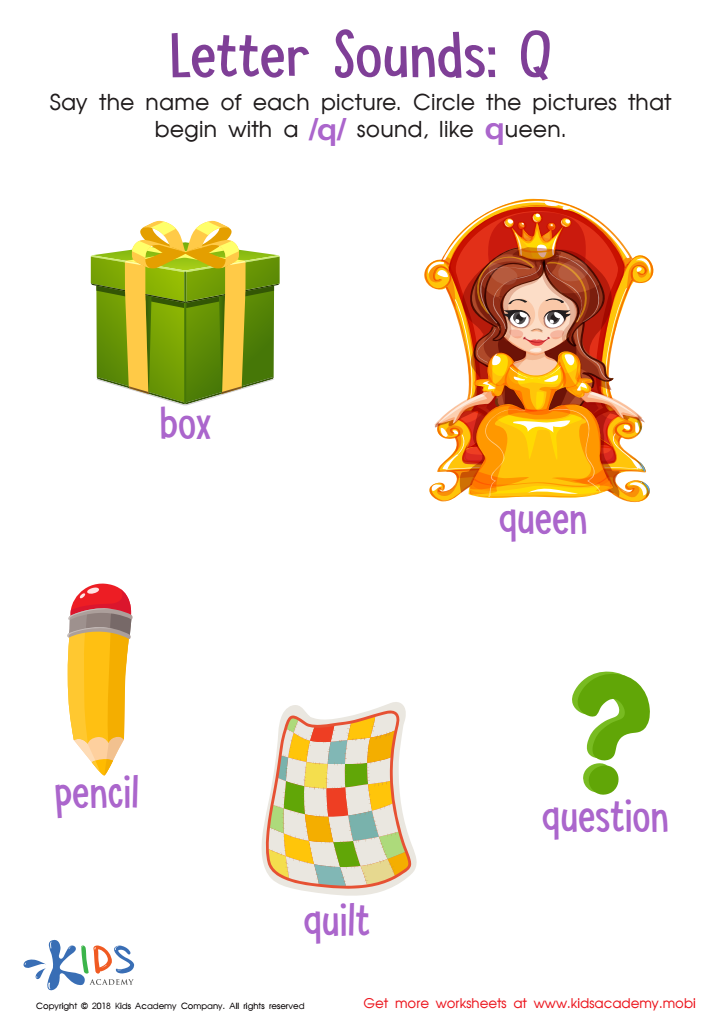

Letter Q Sounds Worksheet
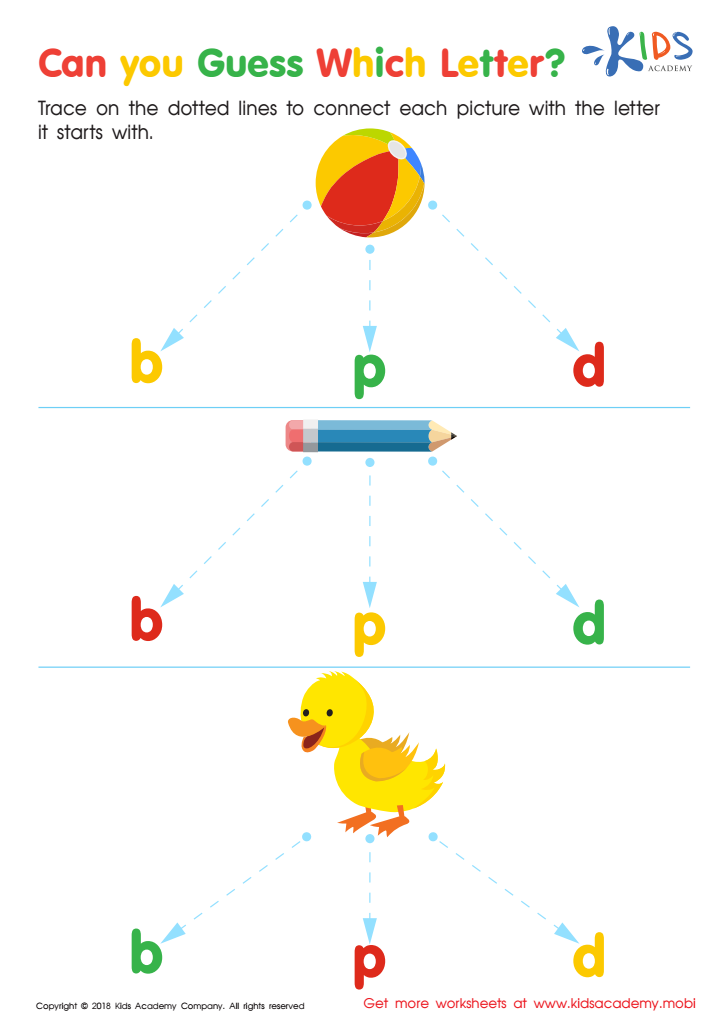

Can you Guess Which Letter? Worksheet
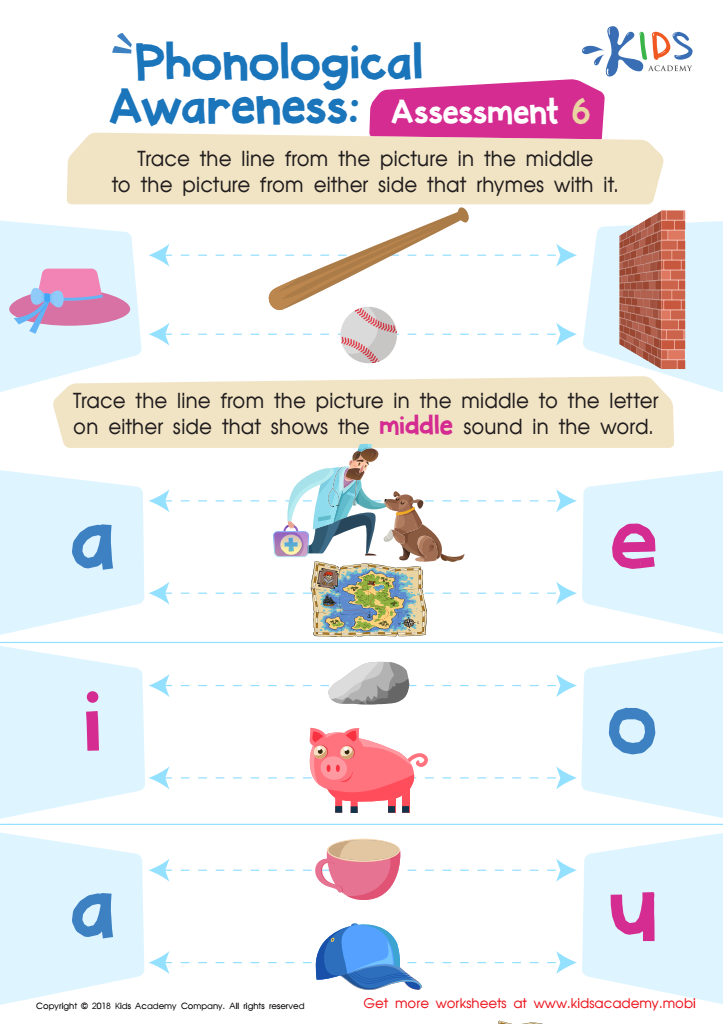

Phonological Awareness: Assessment 6 Worksheet
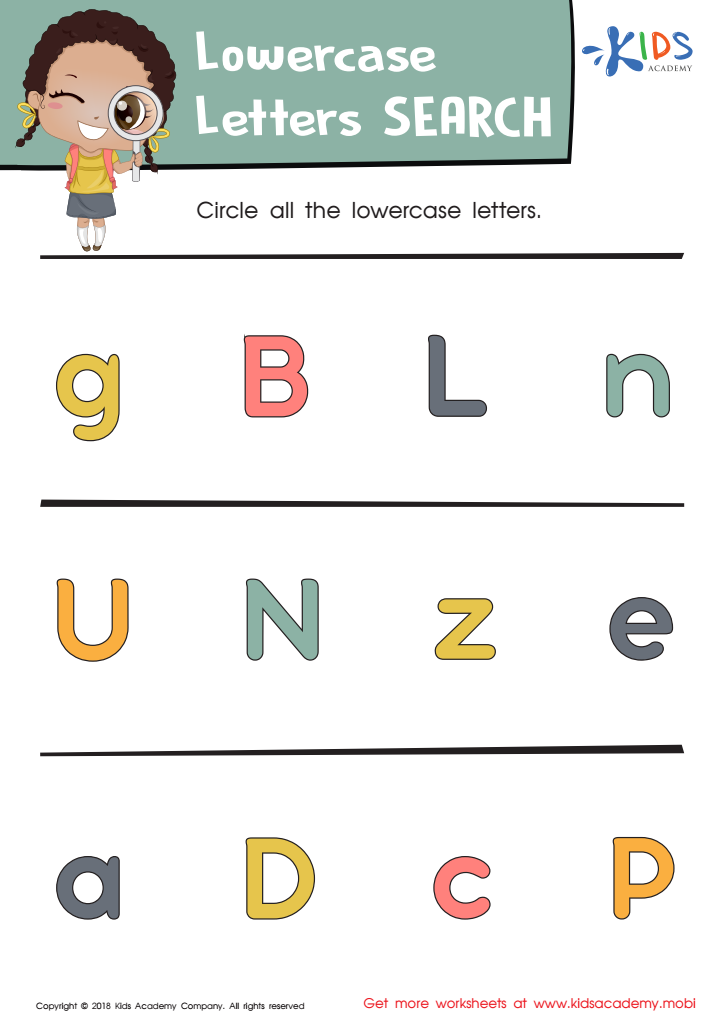

Lowercase Letters Search: Assessment Worksheet


Phonological Awareness: Assessment 1 Worksheet
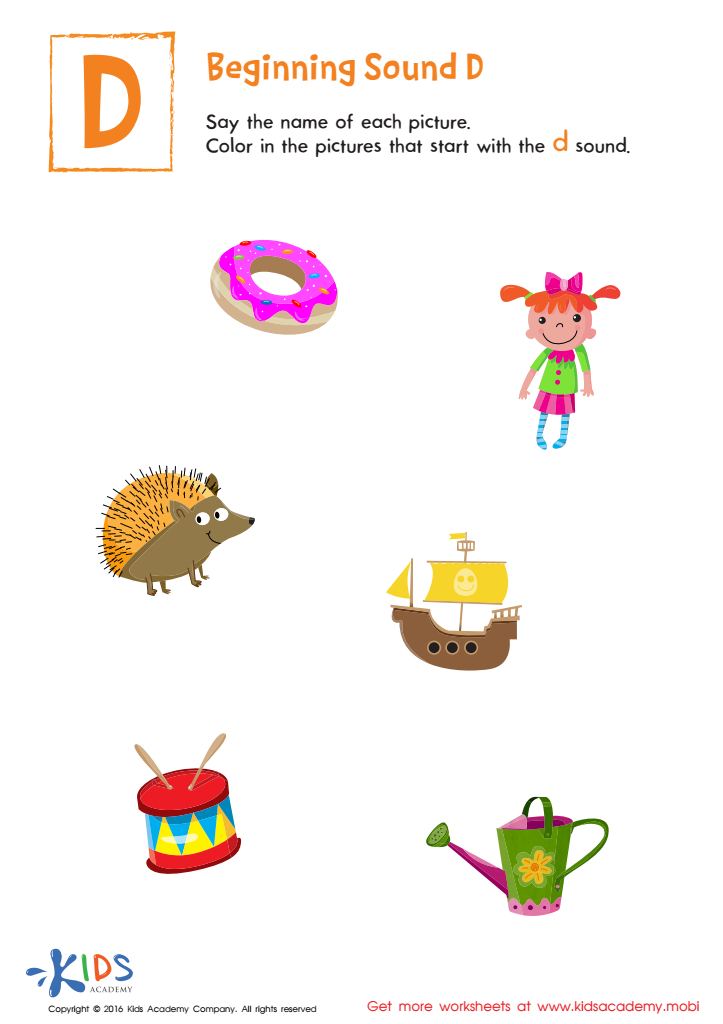

Beginning Sound D Worksheet
Reading readiness is a critical foundation for young children, setting the stage for future literacy and academic success. Parents and teachers should care about presenting the alphabet to children aged 3-5 for several compelling reasons.
Firstly, early exposure to the alphabet helps familiarise children with the basic building blocks of written language. Recognizing letters and their corresponding sounds is the first step towards effective reading. This connection between text and meaning is foundational for literacy development, impacting overall educational achievement.
Secondly, introducing the alphabet fosters cognitive development. Activities involving letter recognition and phonics enhance language processing areas of the brain, improving memory, attention span, and problem-solving skills. Children start to understand the principles of sequencing and order, which are valuable beyond language learning.
Moreover, engagement with the alphabet can make learning fun and interactive. This early exposure helps cultivate a lifelong love for reading. When children are confident in their understanding of letters, they are more likely to view reading as an enjoyable and rewarding activity.
Finally, early literacy skills are linked to improved social and emotional development. As children successfully navigate the alphabet and begin reading, their confidence grows, better preparing them for classroom settings and peer interactions. Investing in reading readiness fosters a strong start, promoting enduring academic and personal growth.

 Assign to My Students
Assign to My Students


















